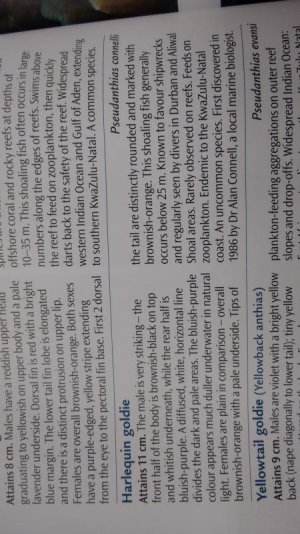mandarinfanatic
New member
http://************.com/2014/12/05/south-african-harlequin-goldies-pseudanthias-connelli-time/
South African law does not allow for capture and resale of these fish. It really brings reefkeeping into disrepute. The company selling this livestock claims to only sell mac approved livestock. These fish were poached and anyone purchasing them is aiding and abetting a criminal act.
South African law does not allow for capture and resale of these fish. It really brings reefkeeping into disrepute. The company selling this livestock claims to only sell mac approved livestock. These fish were poached and anyone purchasing them is aiding and abetting a criminal act.


